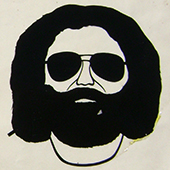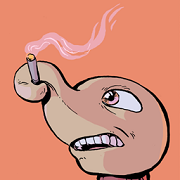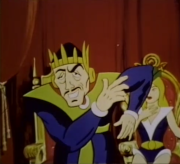|
The Dutch have some pretty off the wall political happenings, what with this horse situation and the time a mayor was literally ripped limb from limb and cannibalized by his constituents.
|
|
|
|

|
| # ? May 30, 2024 20:02 |
|
Samovar posted:The Dutch have some pretty off the wall political happenings, what with this horse situation and the time a mayor was literally ripped limb from limb and cannibalized by his constituents. They didn't have these advertisements back then! 
|
|
|
|
Samovar posted:The Dutch have some pretty off the wall political happenings, what with this horse situation and the time a mayor was literally ripped limb from limb and cannibalized by his constituents. Eat the Rich was actually tried somewhere? Neat-o.
|
|
|
|
The Dutch never brutally murdered a mayor and ate his torn remains like a pack of ravenous beasts. Don't be silly. The Dutch brutally murdered a Prime Minister and ate his torn remains like a pack of ravenous beasts.
|
|
|
|
Samovar posted:The Dutch have some pretty off the wall political happenings, what with this horse situation and the time a mayor was literally ripped limb from limb and cannibalized by his constituents. It wasn't the mayor, it was the Grand Pensionary, Johan de Witt. Grand Pensionary often gets translated to 'prime minister' in the context that the role represents the highest ranking member of the legislature, but it's not a prime minister in the traditional sense. Rather, the Grand Pensionary was simply the head of the representatives of the province of Holland within the Estates General. In practice it was the most powerful legislative position within the Dutch Republic, especially when the office of Stadtholder was vacant, doubly so because he was also responsible for all official government correspondence, both to the lower governments and foreign political entities. In the seventeenth century the major political divide was between the House of Orange, then just Stadtholders (roughly translated: Stewards) and the increasingly wealthy urban middle class that was making money hand over fist, mainly through investments in the Dutch East and West India Company. At the heart of the issue was whether or not the Repuplic would maintain a standing army, or if the national defence should be put in the hands of local city militias bankrolled by rich patricians. Side note: One such city militia was depicted in Militia Company of District II under the Command of Captain Frans Banninck Cocq, better known as The Night Watch, painted by Rembrandt. Militias such as the one depicted on that painting were bankrolled by individual guilds or trading houses, serving as both propaganda ('Look at how we're doing our part to keep the city safe!') and social clubs that gave them an excuse to hang out, get drunk and shoot guns. The Stadtholder, as the highest executive office, was the head of the republic's military. Formally the title didn't belong to the House of Orange, but rather was appointed by the Estates General. In practise the position was always given to the next male member of the House of Orange. Given that this was the Eighty Years War (the Dutch war of independence agains the Spanish Habsburgs) this was more or less just accepted. The only major blowup came during the Twelve Years' Truce, when a dispute between Prince Maurice of Orange and Grand Pensionary Johan van Oldebarneveldt ended with the latter being publicly executed. As early as 1650, two years after the Eighty Years War ended, the House of Orange started a propaganda campaign in an attempt to claim a greater power for the executive. The Orangist campaign was led by Willem II, the great-grandson of William of Orange, the Prince of Nassau who had been the leader of the Dutch revolt during the 80 years war of independence against the Spanish Hapsburg. Willem II had been appointed as Stadtholder to succeed his father, Frederick Henry, who had been extremely successful in the later stages of the Eighty Years War. When Willem II took the office of Stadtholder, the war was all but over already. Willem II tried to occupy several Dutch cities to enforce Orangist control. Several notable politicians and scientists were locked up. When he tried to march on Amsterdam however, part of his army got lost on the moors about twenty miles out from the city. This created time for a warning to reach the city and by the time Willem II did show up the gates were closed to him. Before a full-blown civil war could break out Willem II passed away from a sudden illness in 1650, only 24 years old. His son, Willem III, was born eight days later. This created a new division within The Netherlands. On the one side there were the Estates General, the regency faction, which mostly consisted of the urban middle class and the merchant houses, who held the majority of the economic power in the Republic. On the other side there were the Orangists, who mostly consisted of the old nobility, the less powerful cities outside of the Province of Holland and the agrarian classes. The clergy wasn't particularly relevant in this case due to Protestantism and The Netherlands not having a formal state church. The Estates General had several diplomatic stumbles, including two wars with Cromwell’s England. After the first war, which the Dutch Republic won on paper, the Estates General chose to forego pressing for any serious advantage for the Republic as a whole in the peace negotiations, settling in stead for including a clause in the treaty that would mean that no member of the House of Orange could ever hold the position of Stadtholder again. They chose to consolidate their own political power rather than secure any gains for the Republic. Following more diplomatic bumbling 1672 would become known as ‘rampjaar’ - the Disaster Year. The Dutch Republic ended up fighting a war on three fronts, against France, England, and the Bishoprics of Munster and Cologne. Johan de Witt, Grand Pensionary at the time, and his brother Cornelis, were held responsible for the imminent invasions. Cornelis was arrested and tortured but refused to confess to treason. Cornelis was eventually sentenced to exile. When his brother came to visit him in the prison in The Hague where he was held a rumour quickly spread in the city that Johan had somehow managed to help his brother escape justice. As Johan and Cornelis left the jail they were beaten to death by an angry mob, ripped to pieces, and supposedly cannibalised. It should be noted that there's a lot of evidence pointing towards this lynching being orchestrated by the House of Orange. Willem III had ordered the withdraw of a cavalry detachment that could have prevented the lynching on the day it happened, and several known ringleaders were not only not prosecuted for their role in the lynching, they actually saw their career advanced. What is known is that in the days after the lynching, the Estates General reinstated Willem III as Stadtholder, under the fear of continuing mob violence.
|
|
|
|
FreudianSlippers posted:The Dutch never brutally murdered a mayor and ate his torn remains like a pack of ravenous beasts. One of the best opening lines to anything is in this video about the subject. "Historically speaking, Prime Ministers aren't food." https://www.youtube.com/watch?v=VVsrv5zftYE
|
|
|
|
Skios posted:As Johan and Cornelis left the jail they were beaten to death by an angry mob, ripped to pieces, and supposedly cannibalised. This is the inciting incident of a weird but fun book by Alexandre Dumas, The Black Tulip. I don't think it mentioned cannibalism, but it did have Willem removing the cavalry and locking the town gates so the brothers couldn't escape the crowd.
|
|
|
|
Skios posted:In 1900 The Netherlands passed its first law limiting child labour and introducing mandatory education up to twelve years old, and it's all thanks to a horse. When the law came up to a vote, it was incredibly close. In the end it passed with a 50-49 majority in parliament. A 50-50 tie would have meant the law hadn't passed. It was 49 votes against because Baron Francis David Schimmelpenninck was thrown from his horse on his way to parliament, causing him to miss the vote. It introduced a new proverb to the Dutch language: "Het paard is verstandiger dan de meester." (The horse has more common sense than the master). Baron Francis David Schimmelpennick is a great name for a Dickens villain.
|
|
|
|
Samovar posted:So in a case of 'witch-ducking' logic, the prosecutor got the expert to state that the handwriting samples given by Beck in '94-95 were in a disguised hand. Yes, the fact that the handwriting DIDN'T match, reasoned the prosecutor, meant that Smith and Beck were one and the same. Wasn't this same logic used to convict Alfred Dreyfus at basically the same time? Get your act together, mid-1890s judicial proceedings!
|
|
|
the holy poopacy posted:Wasn't this same logic used to convict Alfred Dreyfus at basically the same time? Get your act together, mid-1890s judicial proceedings!
|
|
|
|
|
Sumerians talk about beer more than hipsters.
|
|
|
|
Borscht posted:Sumerians talk about beer more than hipsters. I didn't realize there were any Sumerian Hipsters
|
|
|
|
bunnyofdoom posted:I didn't realize there were any Sumerian Hipsters Well, they didn't record much about them because they were too busy talking about beer.
|
|
|
|
bunnyofdoom posted:I didn't realize there were any Sumerian Hipsters 
|
|
|
|
Chillgamesh
|
|
|
|
Solid lol
|
|
|
|
Phy posted:Chillgamesh Pff, I saw the Secret and discovered the Hidden before the Flood.
|
|
|
|
De Morbis Artificum Diatriba, besides being the name for my Marxist black metal band’s first EP, is a book by Italian physician Bernardino Ramazzini. First published in Venice in 1700 and given a second edition in 1713, Dissertation on Workers’ Diseases is the first text in western medicine that deals with the subject of occupational health and safety. He was the first doctor to teach that physicians should ask patients for their occupation as part of a standard intake. The Dissertation talks at length about the various ways in which work can harm the human body. While ancient Greek and Roman physicians had in the past made observations of maladies associated with specific types of work, the Dissertation is the first one that provided a comprehensive guide for pretty much every common occupation in renaissance Italy at the time. It’s also the first medical text that deals with both manual labour and clerical/office work, and tries to tie specific ailments not just to jobs in general, but to specific aspects of jobs, so as to suggest preventative measures for it. While it had been done in the past for specific fields of work such as mining, the Dissertation was the first book of its kind to cover the full breadth of the labour force at the time, all the way down to the lute string makers. As had been the standard basically since Ancient Greece, the book doesn’t really differentiate the scientific theory of medicine from the bedside practice. It also eschews using a rigid systematic approach to building up its individual chapters. However, the observations in the book are incredibly well written, even when looked at from a modern perspective. He was one of the first to not only talk about specific occupations, but also draw broader conclusions on the dangers of things like standing or sitting all day, repetitive motions, poor ventilation and exposure. A lot of the stuff he talks about is obvious now, but at the time, suggestions like occupation-specific protective gear, the importance of a properly ventilated workplace, good posture, and things like getting up and taking a walk every now and then for workers who sat around all day. The book remained tremendously influential in the decades after its publication. It was highly influential not just as the foundation of occupational health and safety, but with its extensive observations on the dangers of exposure to certain substances, poor ventilation and poor lighting it was also one of the cornerstones for new theories of social medicine and public health during the age of enlightenment and the rising industrial age. It was also influential on the work of Adam Smith, and especially Karl Marx.
|
|
|
|
Skios posted:De Morbis Artificum Diatriba, besides being the name for my Marxist black metal band’s first EP, is a book by Italian physician Bernardino Ramazzini. First published in Venice in 1700 and given a second edition in 1713, Dissertation on Workers’ Diseases is the first text in western medicine that deals with the subject of occupational health and safety. He was the first doctor to teach that physicians should ask patients for their occupation as part of a standard intake. That's pretty neat!
|
|
|
|
"Givin me real Edwin Smith Papyrus vibes here," says goon who barely ever stops thinking about the Edwin Smith Papyrus
|
|
|
|
That Papyrus was a real font of knowledge
|
|
|
|
Joseph Medicine Crow was a member of the Crow Nation and the last of his nation to meet the four requirements to become acknowledged as a war chief by his people: * Touch an enemy without killing them * Lead a raid where no member of the war band gets injured * Disarm and capture an enemy * Steal an enemy’s horse He got his chance to meet the requirement to take an enemy horse when his unit was pursuing a group of SS officers that had fled on horseback. They were holed up in an old farmhouse. When the company commanders were planning out the attack he volunteered to take the horses so that the SS officers couldn't use them to flee. He was given permission and successfully got the horses away from the farmhouse, completing the final requirement. He was officially acknowledged as a war chief when he came back home. Obviously the horse part is by far the hardest to complete in modern warfare. Plenty of Crow Nation members have done the first three, only missing out on the horse. Most notably there was Walks On Ice, Joseph Medicine Crow’s nephew, who served in the Vietnam War. He thought he had completed the last of the four objectives when he managed to capture two elephants used by the Vietcong to transport cargo down the Ho Chi Minh trail, but after deliberation the elders decided that no, it doesn’t count, it has to be horses.
|
|
|
|
That is amazing, but drat, they really should consider updating their rules for the new generations. I would think you would want to adapt to keep those traditions alive. Maybe "horsepower" could be an acceptable substitute?
|
|
|
|
The list had to be adapted at some point, as I'm sure point #4 was even tougher before the Spanish introduced horses to North America.
|
|
|
|
Ommin posted:That is amazing, but drat, they really should consider updating their rules for the new generations. I would think you would want to adapt to keep those traditions alive. Maybe "horsepower" could be an acceptable substitute? I told this story to my wife and she suggested that hotwiring a Ford Mustang should count (at least during wartime)
|
|
|
|
Or declare war on horses
|
|
|
|
Joe Medicine Crow also lived to age 102. Guy was too cool to die
|
|
|
|
canyoneer posted:Joe Medicine Crow also lived to age 102. Guy was too cool to die Death had to wait till Joe was too old to steal his horse
|
|
|
|
Deteriorata posted:The list had to be adapted at some point, as I'm sure point #4 was even tougher before the Spanish introduced horses to North America. No, there were horses before that. Source: The Book of Mormon
|
|
|
|
Deteriorata posted:The list had to be adapted at some point, as I'm sure point #4 was even tougher before the Spanish introduced horses to North America. Technically nobody has been eligible since the original North American horse species went extinct 12,000 odd years ago.
|
|
|
|
Deteriorata posted:The list had to be adapted at some point, as I'm sure point #4 was even tougher before the Spanish introduced horses to North America.
|
|
|
|
The dirtbag nowhere Texas town I grew up in was right by the site of the last real battle between the Comanche and the US. It is a shame we don't talk about them more. They were hunter-gatherers in the mountains of Wyoming and Colorado. Then one day somebody saw a horse and independently invented being Genghis Khan. 200 years later they are the terror of the Texas Rangers (rightfully, ACAB).
|
|
|
|
Went to go find this map hoping commanche had one of the fun literal translations like 'tame elk' but they are one of the most decisive.
|
|
|
|
Deteriorata posted:The list had to be adapted at some point, as I'm sure point #4 was even tougher before the Spanish introduced horses to North America. Before then most of the Plains nations were farmers and their culture was completely different.
|
|
|
|
My great granddad was this guy He proved something that today sounds really loving obvious. He proved statistically that prices actually ebb and flow due to societal changes, inflation and so forth and NOT as previously assumed "randomly and explosively". This didn't really catch on at the time though, much to his frustration, because he had written it in Danish which, not being one of the three primary western world languages at the time, meant that he may as well not have bothered writing it in the first place. His name was Edvard Philip Mackeprang and his dissertation "Pristeorier" (1906) made him the world's first econometrician.
|
|
|
|
SerthVarnee posted:My great granddad was this guy He looks pretty good for a guy that's almost 150 years old.
|
|
|
|
He looks like he knows where to get some good weed
|
|
|
|
SerthVarnee posted:My great granddad was this guy he looks really spry for 120+ years old
|
|
|
|
Who is in the painting behind him
|
|
|
|

|
| # ? May 30, 2024 20:02 |
|
Yeah, yeah, got your pricing thinger, but what kind of material are those glasses made of?!
|
|
|


































